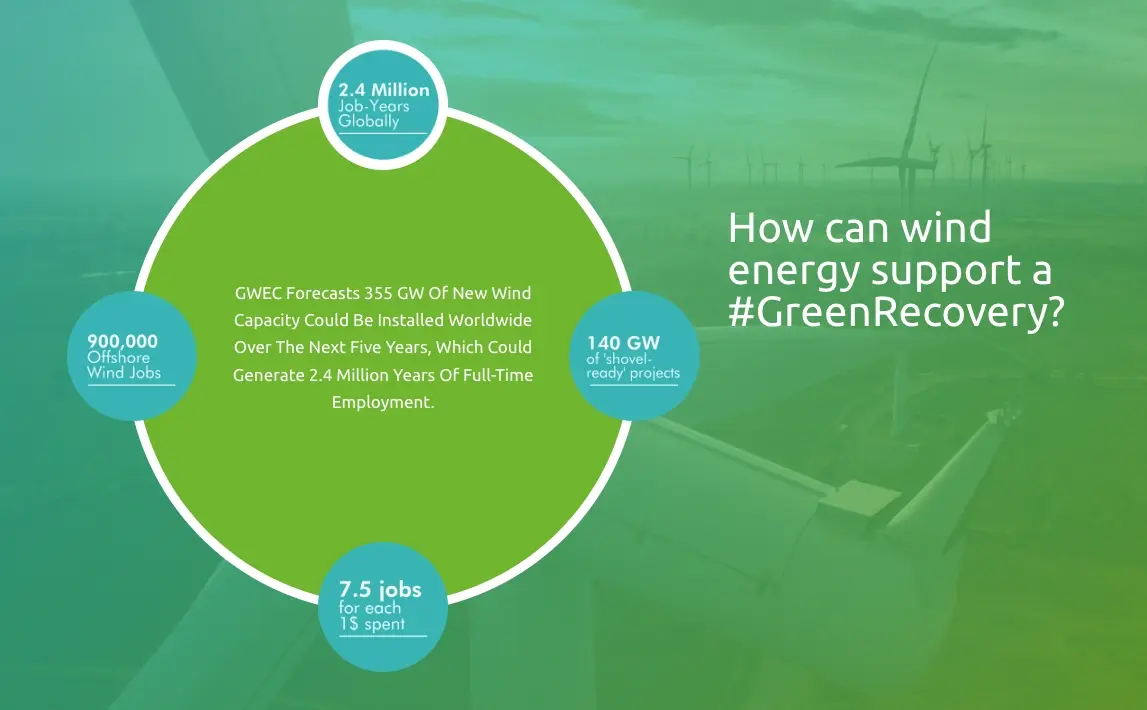Wind Power & Green Recovery Hub
Wind Power: A cornerstone of Green Recovery
Re-building Better for a More Sustainable and Resilient Future
Wind Power is a key building block for economic recovery from the impact of COVID-19, which will enable governments to renew critical infrastructure for a sustainable future. The wind industry will help to deliver the jobs, clean and affordable power and energy security needed for a sustainable economic recovery.
Impacts of COVID-19 resulted in an 8% CO2 emissions reduction in the first half of 2020, compared to the same period in 2019. But research has shown that emissions have already returned to pre-COVID levels in many markets, and we remain on a dangerous trajectory towards around 3°C of global warming above pre-industrial levels.
The crisis offers a unique window of opportunity to put the world on a sustainable trajectory and meet our international climate goals, but we must act now or we will miss the opportunity.
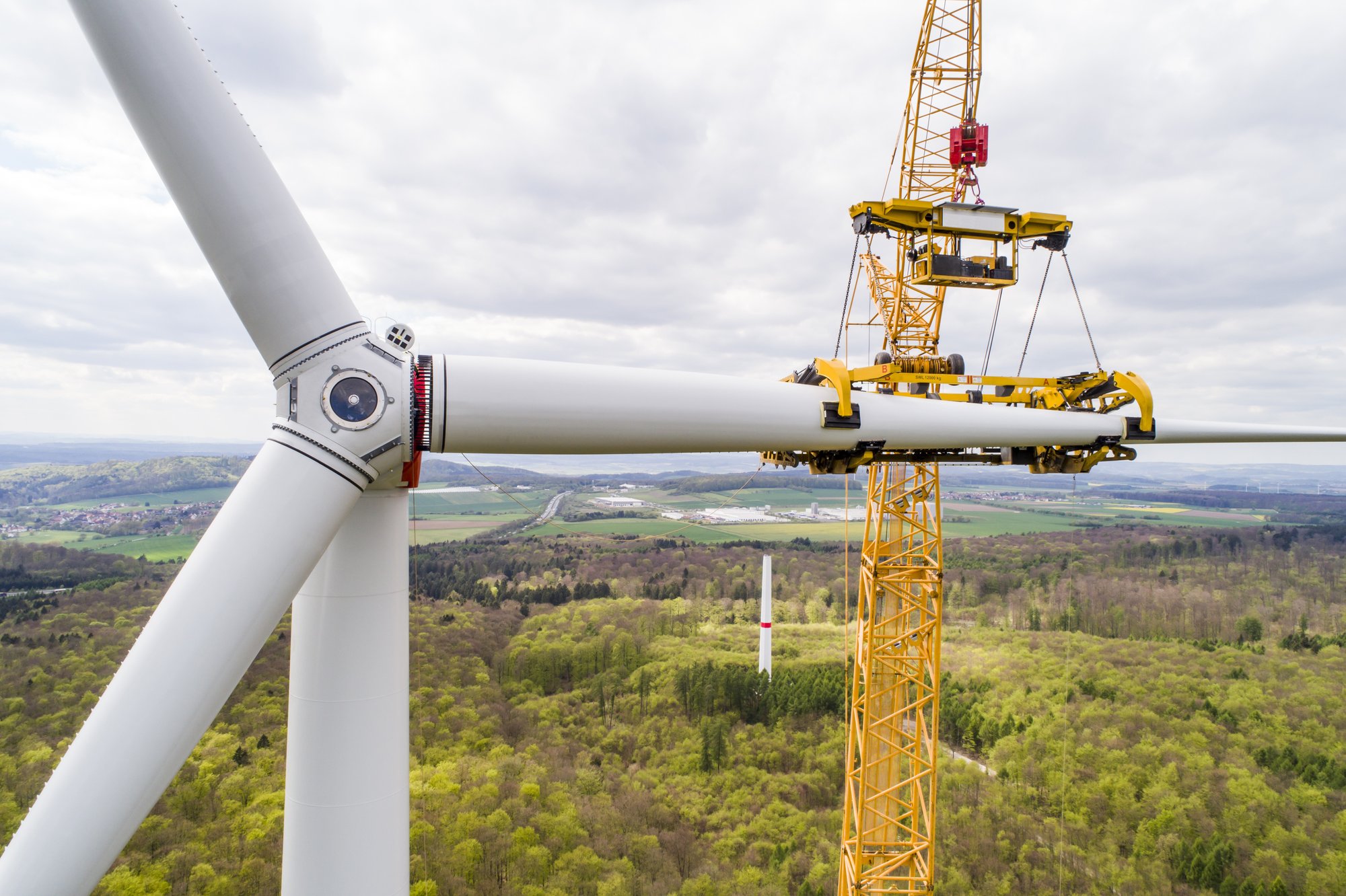

.png?width=875&height=570&name=Untitled%20design%20(7).png)
Global Wind Industry Statement on Green Recovery
In May 2020, the global wind industry, representing 98% of the total global wind power installed capacity, published a statement highlighting how wind power can support a green recovery, and outlining key policy recommendations to maximise the socioeconomic benefits of wind power across the world.
Wind power is a key building block for economic recovery trom the impact of COVID-19, which will enable governments to renew critical infrastructure for a sustainable future. The wind industry will help to deliver the jobs, clean and affordable power and energy security needed for a sustainable economic recovery.
Download the statement in 9 different languages!
-

The wind industry can concretely contribute to a sustainable future for the planet and the European recovery after #COVID19. In such view, ensuring fair and shorter permitting and connection procedures would do more than anything to help accelerate investments in new wind projects and unleash wind sector contribution to the European Green Deal.
Jin Xiaolong
Chairman, Shanghai Electric Wind Power Group Co., ltd
-

Covid-19 has taught the world the value of collaboration to protect the most vulnerable and the elder members of our society. Now is the time to refocus the momentum. We must work together to stop climate change and protect our children’s future. The offshore wind industry is ready to contribute massively to a just and fair transition for all, by creating and maintaining industrial jobs close to our homes and generating clean energy to power our cities. We can create a better world, let’s bring to life the green new deal we need to achieve our climate goals.
Antonio Cammisecra
CEO, Enel Green Power
-

The wind sector is one of the world's most promising industries. Policies and investment frameworks that further advance this industry is therefore central to boost growth as our economies recover. Not only can our industry support millions of jobs and billions in investment, but the immense benefits that wind energy can bring to society as a whole, such as affordable power, cleaner air and resilient infrastructure, means that the return on investment for wind makes it a logic choice for countries seeking green recovery after the pandemic
Philippe Kavafyan
CEO, MHI Vestas
-

The COVID-19 crisis is impacting people, societies and economies. There is no question that we all fight the impact and strive for recovery. Also, it should be no question that the economic recovery needs to be a green recovery to ensure that we set our societies and economies on a sustainable pathway in order to save climate and environment, for us, and for generations to come. The wind industry is ready to deliver climate friendly energy, that creates jobs and supports economic development.
Morten Dyrholm
SVP, Vestas
-

The wind industry can play a major role in restarting economies around the world after the pandemic. Together, we should grasp the opportunity to set the course for a more sustainable future based on renewable energy.
José Luis Blanco
CEO, The Nordex Group
-

The COVID-19 pandemic is having enormous impact on many countries throughout the world, and the wind industry can serve as the cornerstone of recovery. We have taken major measures to ensure the supply of wind turbines without compromising efforts to prevent and control the spread of the virus, and we remain as committed as ever to supporting the acceleration of the global energy transition.
Hans-Dieter Kettwig
CEO, Enercon
-

Our 1.3 GW Andes Renovables platform in Chile shows that renewable energy is the most cost-effective stimulus for a global post-COVID recovery. Our investment of over USD 1.8 billion will see a workforce of 3,100 across 7 wind and 3 solar sites install over a million solar panels, erect 223 wind turbines and build 175km of high voltage transmission lines. Not only will this portfolio play a key role in decarbonising Chile’s electricity system, it will significantly lower the price of power generation in the country at a critical time for Chile’s economy.
Zhang Chuanwei
Chairman, MingYang Smart Energy Group
-

Responses to recovery should address socio-economic and health emergencies while designing a better planet and a sustainable future for all. A future in which a clean and mature energy like wind, is key to a climate-safe world and essential to create a resilient and low-carbon economy.
Andy Kinsella
Chairman, Group Chief Executive Mainstream Renewable Power
-

Governments are facing the difficult task of bringing the health emergency under control. Advancing the renewables-based energy transformation will help us seek a greener way out of this and is an opportunity to meet international climate goals while boosting economic growth, creating millions of jobs and improving human welfare. If we want to combat climate change, this is our chance, we have to take action now!
José Manuel Entrecanales
Chairman and CEO, ACCIONA
-

The COVID-19 pandemic shows in a dramatic way how precious a safe environment is. At ZF Wind Power, we are convinced that the wind technology has a pivotal role in the transformation to a safely powered society. Now is the time for our industry to team up and make specific proposals to governments and EU institutions to use public funds for sustainable investments in new jobs, new technologies and improved infrastructure. Wind can make the difference!
Adolfo Rebollo
CEO, Ingeteam Group
-

We stand at the threshold of a historic return to activity in most parts of the world, after a pandemic that has made us rethink how we are powering our cities and industries, and to reconsider how we will do so in the future. Renewable energy is now more vital than ever as we strive to rebuild better, with wind and solar energy playing a core role in the coming future. In order to guarantee a successful transition, public and private players must enhance their cooperation.
Mitja Schulz
CEO and SVP, ZF Wind Power
-

Renewable energy is a key driver of the global energy transformation, and wind power is the future energy. Wind power will play an extremely important role in generating new investment, sustainably powering rising energy demand and international trade after the COVID-19 outbreak to revitalize the global economy.
João Manso Neto
CEO, EDP Renewables
-

ENERCON has been setting benchmarks in onshore wind energy technology and innovation for more than 30 years. With more than 50 GW installed worldwide, we continue to grow beyond established markets while maintaining quality leadership. With its network and variety of activities, GWEC is an ideal partner on the path to achieving a truly global footprint.
Hans-Dieter Kettwig
Managing Director at ENERCON
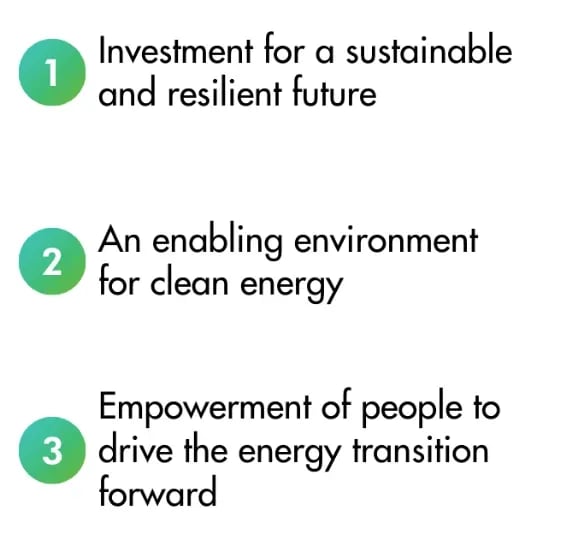
Policy Recommendations
A robust policy framework is key to accelerating wind power growth at the necessary levels to meet Paris-compliant decarbonisation scenarios. Policy is also critical to realising the environmental and socioeconomic benefits of wind power, including job creation, local investment, development of critical infrastructure, public health savings, energy security and much more.
Discover our policy recommendations below.
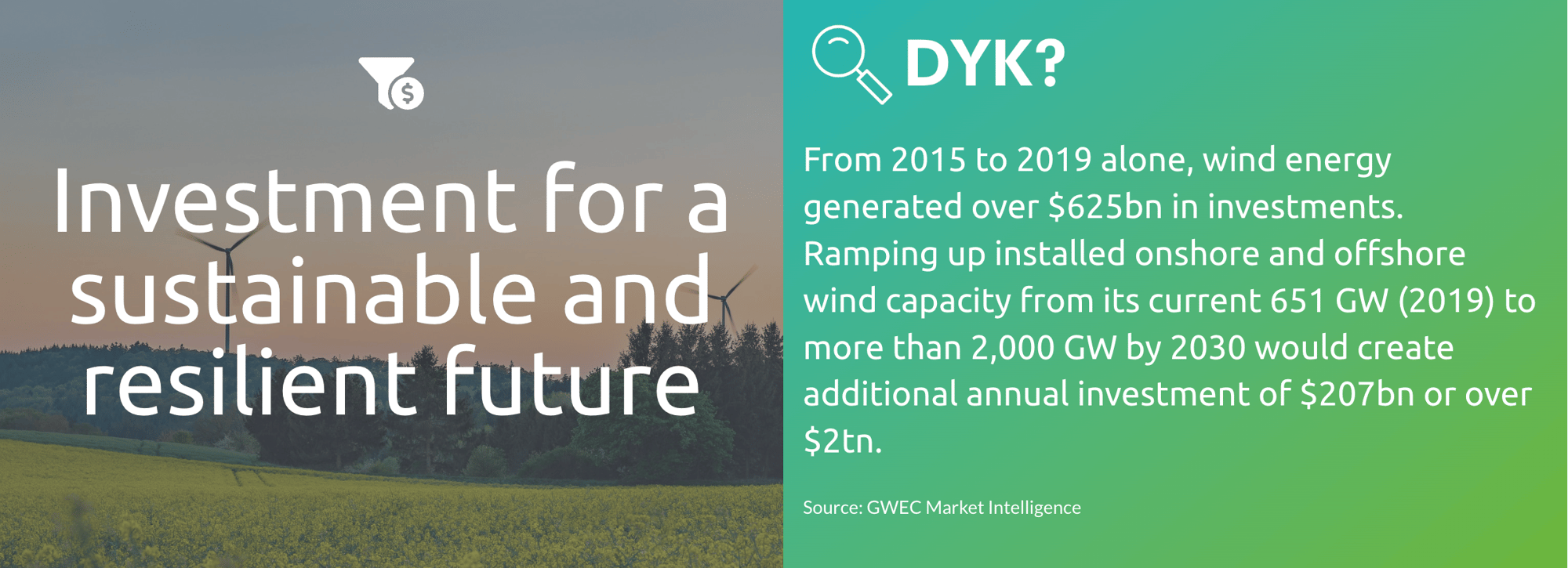
Policy Recommendations
Introduce meaningful carbon pricing on an international basis and promote a level playing field across energy sources to allow the accelerated deployment of renewables and electrification of sectors such as transport, heating and cooling and industry.
Ensure that adequate investment flows towards critical infrastructure, including power systems and grid infrastructure, at a low cost of finance and with adherence to sustainability standards.
Provide strong support for innovation and R&D programs in order to allow the accelerated deployment of the next generation of wind turbine platforms.
Introduce clear criteria that investment schemes for public and private bodies are built upon the principle of “No Harm” for society and the environment.
Implement evidence-based decision-making for government-backed investment, guided by metrics such as impact on GDP, envrionmental impact, resource depletion, social value and system resilience.
Safeguard institutional and multilateral lending and relief funds by instituting reporting requirements for sustainability and climate-related disclosures, in line with the recommendations of the Task Force on Climate-related Financial Disclosures.
Move swiftly to scale-up green financing for emerging markets and developing economies, which are facing accelerated capital flight and growing debt that hinders their clean energy transition.
Three of New York City’s five public employee pension funds voted to divest $4 billion from securities related to fossil-fuel companies.
The latest Task Force on Climate-related Financial Disclosures (TCFD) status report, dated October 2020, highlights the need for greater transparency and climate-related disclosures. The report also shows that energy companies are leading on disclosure, with an average level of TCFD-aligned disclosures of 40% for energy companies in 2019.
Source: https://assets.bbhub.io/company/sites/60/2020/10/TCFD-2020-Status-Report-Press-Release_FINAL.pdf
In light of the financial resources required to combat COVID-19, the IMF approved a six-month tranche of debt service relief for 25 member countries in April 2020, followed by a second six-month tranche of relief in October 2020. The World Bank Group and IMF have urged G20 countries to establish a Debt Service Suspension Initiative.
Source: https://www.imf.org/en/News/Articles/2020/10/02/pr20304-imf-executive-board-extends-immediate-debt-service-relief-28-eligible-lics-six-months; https://www.worldbank.org/en/topic/debt/brief/covid-19-debt-service-suspension-initiative
In November 2020, the NSW Government in Australia announced it would allocate $32 billion to invest in renewable energy infrastructure over the next decade, which will deliver around 12 GW of new transmission capacity, 3 GW of new renewable energy capacity, generate 9,100 jobs, as well as help save households an average of $130 on their electricity bills each year.
Source: https://energy.nsw.gov.au/government-and-regulation/electricity-infrastructure-roadmap
The South African Wind Energy Association (SAWEA) is pushing for a green economic recovery plan, which should consider renewable energy as one of the main components of the government economic stimulus package post-COVID-19.
The Canadian government’s Large Employer Emergency Financing Facility (LEEFF) provides bridge financing to companies with revenues in excess of $300 million a year, with recipient companies required to commit to publishing annual climate-related disclosure reports consistent with the Financial Stability Board’s Task Force on Climate-related Financial Disclosures, including how their future operations will support environmental sustainability and national climate goals.
“Investment in offshore wind expected to show strong growth” – IEA: World Energy Investment, 2021
“$465 Million to Expand Energy Access and Renewable Energy Integration in West Africa” World Bank Group, 2021
“Delivering on the $100 billion climate finance commitment and transforming climate finance.” Independent Expert Group on Climate Finance UNFCCC. December 2020
“Consultation Document.” Taskforce on Voluntary Carbon Markets. November 2020
“COVID-19 Recovery Package Analyses.” Global Renewables Congress. 2021.
“Aligning Stimulus with Energy Transformation.” Wärtsilä. October 2020.
“Will COVID-19 fiscal recovery packages accelerate or retard progress on climate change?” Hepburn, C., O’Callaghan, B., Stern, N., Stiglitz, J., and Zenghelis, D. (2020), Smith School Working Paper 20-02.
“Beyond Crisis: Renewable Energy for a Low-carbon Future.” IRENA. 2020.
“Report: Green recovery plans boost income, employment and GDP.” We Mean Business Coalition. October 2020.
“Making the green recovery work for jobs, income and growth.” OECD. October 2020.
“Green Finance Strategies for Post-COVID-19 Economic Recovery in Southeast Asia: Greening Recoveries for Planet and People”. Asian Development Bank. October 2020.
“Greening the Recovery“. IMF. 2020.
“A Toolbox for Sustainable Crisis Response Measures for Central Banks and Supervisors“. Grantham Research Insititue on Climate Change and the Environment, The Centre for Sustainable Finance at SOAS, and INSPIRE. June 2020.
“Planning a Sustainable Post-Pandemic Recovery in Latin America and the Caribbean“. Cardenas, M., Ayala, J.J.G. UNDP. September 2020.
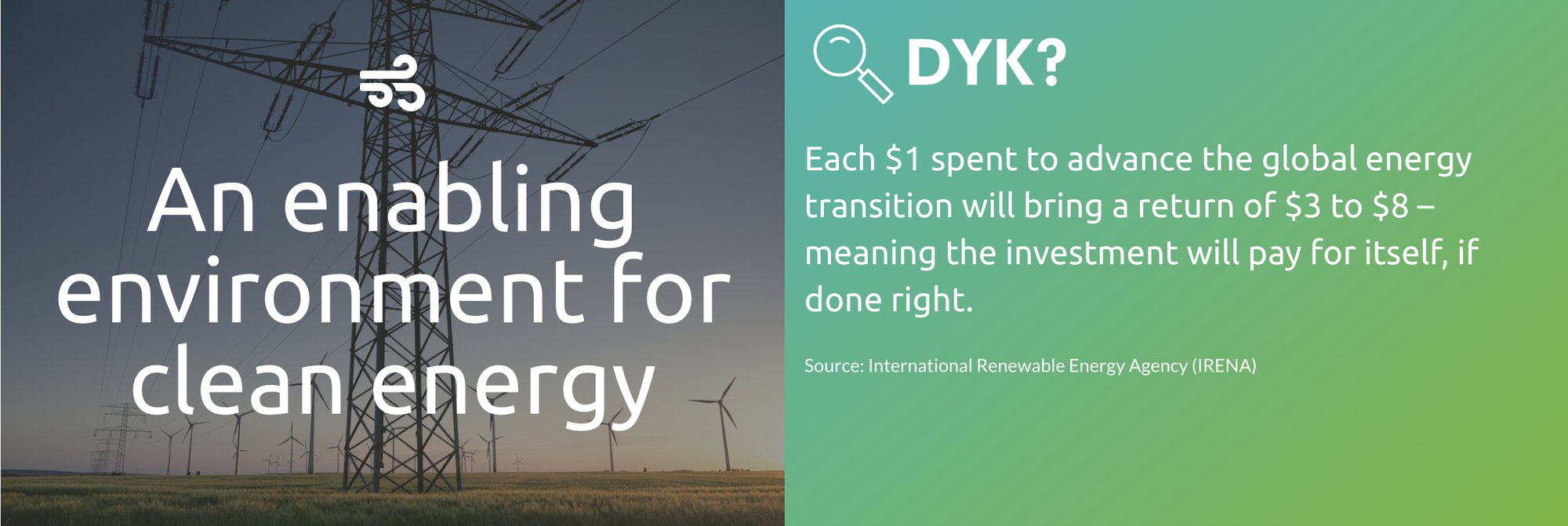
Policy Recommendations
Implement regulation that is fit for purpose, including market design that provides long-term visibility and streamlined permitting that enables rapid ramp up of deployment.
Safeguard existing and awarded wind projects, avoid retroactive changes to approved remuneration schemes, and secure continuation of planned clean energy auctions.
Create adequate frameworks to allow extensive and efficient repowering of older wind power plants.
Enable and promote end-consumer 100% renewable energy demand in order to allow corporates to ramp up and meet their sustainability objectives. Remove regulatory barriers where these exist in order to enable corporates to freely purchase renewable energy.
Dis-incentivise investment in polluting, expensive and aging fossil fuel assets by introducing pricing mechanisms which reflect the true economic, social, environmental and health costs of fossil fuel generation and completely phase-out fossil fuel subsidies.
Increase ambitions to decarbonise all economic sectors through electrification.
Reject proposals to dilute or recall legislation for environmental protection.
In March 2020, India issued “Must Run” status for wind farms to ensure that wind projects can continue to run as an essential service, and granted a time extension for the scheduled commissioning dates of wind projects, in light of pandemic-related delays.
Source: https://mnre.gov.in/img/documents/uploads/file_f-1585207142578.pdf; https://mnre.gov.in/img/documents/uploads/file_f-1585207142578.pdf
Members of the wind industry are calling for repowering regulations to be streamlined across Europe, allowing older wind farms to be refitted with a reduced number of modern and more efficient turbines. This would extend project lifetimes so that clean energy growth can continue, and progress towards renewable energy capacity targets can be sustained.
Source: https://windeurope.org/newsroom/press-releases/what-happens-when-wind-turbines-get-old-new-industry-guidance-document-for-dismantling-and-decommissioning/; https://www.rechargenews.com/wind/distance-rules-a-big-downside-to-repowering-potential-rwe-renewables-dotzenrath/2-1-922226
Nigeria ended subsidies on gasoline in 2020, saving the government as much as US$2.6 billion per year.
In 2020, governments in China, Japan, South Korea, Hungary and South Africa made pledges to reach carbon neutrality by 2050 or 2060. Commitments to reach net zero emissions from regional governments and businesses have doubled in 2020, compared to 2019. These commitments will require comprehensive policy frameworks which emphasise sustainable growth and science-based approaches for successful implementation.
Source: https://unfccc.int/news/commitments-to-net-zero-double-in-less-than-a-year
In November 2020, the UK set out its “Ten Point Plan for a Green Industrial Revolution” which advances offshore wind, accelerates the shift to zero emission electric transport and supports electrified heating to decarbonise buildings.
In April 2020, China announced that it would extend current subsidies for electric vehicles until the end of 2022 as well as strengthen policy frameworks around the electrification of transport to increase uptake and demand for electric vehicles.
Source: http://www.gov.cn/zhengce/zhengceku/2020-04/23/content_5505502.htm
The state-owned NTPC in India announced in September 2020 that it will no longer acquire land for greenfield coal-fuelled power projects as part of its pivot to renewable energy.
The Japanese government has allocated one billion JPY for building a decarbonised regional system for delivery goods (logistics), increasing the local demand for electricity produced by renewable energy.
Source: http://www.env.go.jp/earth/earth/ondanka/energy-taisakutokubetsu-kaikeir02/matr02-01-04f2.pdf
India’s power ministry extended the waiver of inter-state transmission systems (ISTS) charges and losses on supply of power generated from wind and solar until 30 June 2023.
“Biggest leasing round to date.” ScotWind 1 leasing round results. Offshore Wind Scotland. January 2022.
‘More digital services and stronger safety nets.’ IEA Korean New Deal – Digital New Deal, Green New Deal and Stronger Safety Net. July 2021.
“Circular economy for the wind sector (CEWS)” ORE Catapult, 2021
“Global update: Pandemic recovery with just a hint of green.” Climate Action Tracker. September 2020.
“Greenness of Stimulus Index.” Vivid Economics. 2020
“Global Renewables Outlook: Energy transformation 2050.” IRENA. April 2020.
“Global Wind Report 2019.” Global Wind Energy Council (GWEC). March 2020.
“Beijing Declaration on Wind Energy”. October 2020.
“Power of Our Ocean”. Ocean Renewable Energy Action Coalition. December 2020.
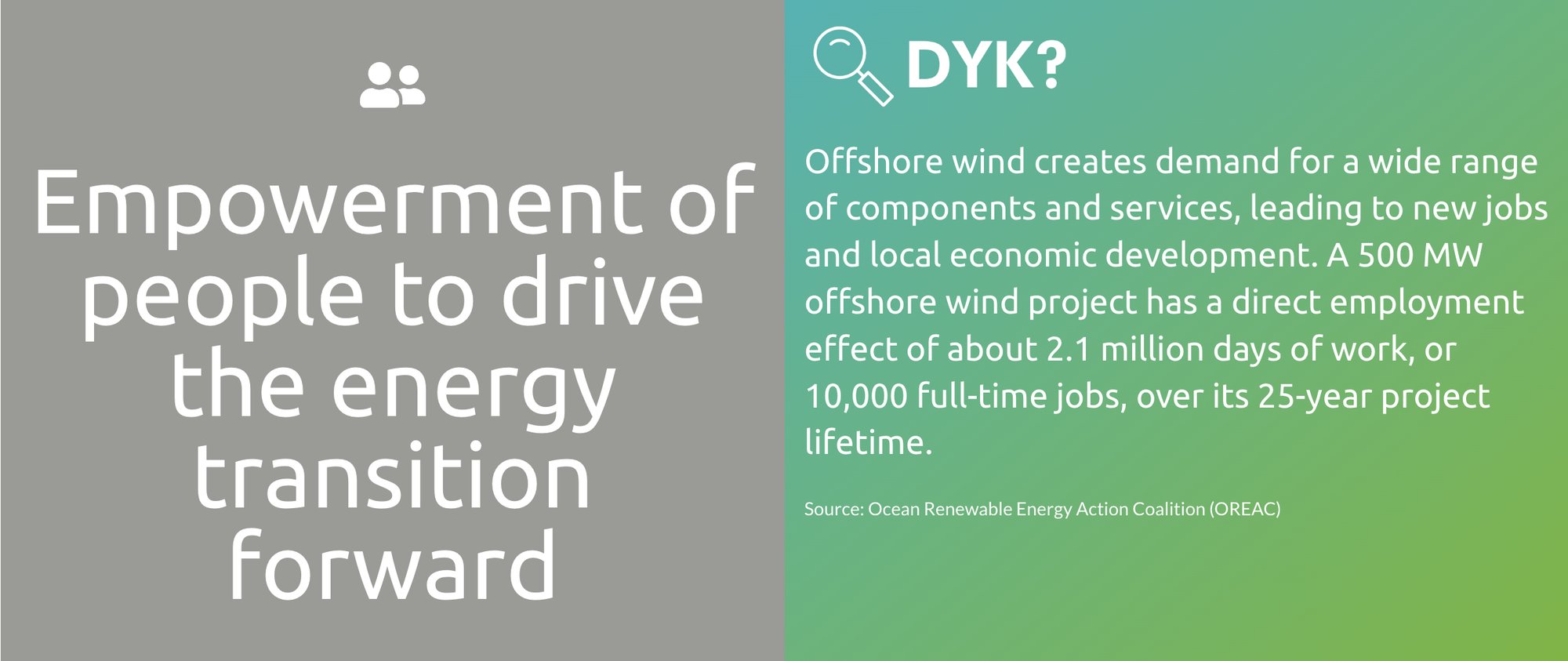
Policy Recommendations
Capitalise on the enormous potential for the wind energy industry to create direct and indirect jobs by prioritising renewable energy for investment.
Re-skill workers who may be dislocated from sectors with a declining business case for employment in a growing sector like offshore wind.
Commit to a just and inclusive energy transition by ensuring that recovery plans focus on equitable distribution of resources, training and skills development across genders, minority groups and marginalised communities.
Maintain health and safety as a core pillar of wind energy and workforce planning.
‘Harness the full potential of the social and economic co-benefits of renewables and to build the skills base needed for the energy transition’ – COBENEFITS project in collaboration with the Sustainable Energy Jobs Working Group under IRENA’s Coalition for Action 2021
“Achieving a future that is sustainable and inclusive and growing is so compelling an idea that today’s leaders owe it to future generations to act immediately” – Our Future Lives and Livelihoods: Sustainable and Inclusive and Growing. McKinsey. 2021
“Changes in the energy sector must support social and economic development and improve quality of life” – People Centred Transitions, IEA, 2021
Encourage ‘meaningful and equal participation of women in climate action’ – Glasgow Climate Pact, UNFCCC, 2021
South Korea’s Green New Deal, introduced in 2020, commits around US$61 billion to boost wind and renewable energy capacity and expand the green mobility sector by 2025.
In December 2020, the Global Wind Organisation (GWO) and RenewableUK launched a new training programme to fast-track the transition of skilled workers from the offshore oil and gas sector to the offshore wind sector.
A 2021 study from UC Berkeley and Tsinghua University found that a faster transition to wind and renewable energy in China would result in multiplier effects, including expenditure shifting, job creation and higher economic efficiency, which could add as much as 7.5% to national GDP and 5.9% to total jobs in China by 2030 compared to business-as-usual.
Source: https://www.enerarxiv.org/page/thesis.html?id=2993; http://chinadialogue.net/en/energy/china-can-benefit-from-a-more-ambitious-2030-solar-and-wind-target/
In June 2020, the European Bank of Reconstruction and Development launched a just transition initiative to share the benefits of a green economy transition and protect vulnerable countries, regions and people from falling behind.
Source: https://www.ebrd.com/what-we-do/just-transition-initiative
The “Green Collar” portal is a new initiative set up in October 2020 that lists jobs in the environmental sector in South East Asia, from renewable energy to sustainable agriculture, to highlight opportunities for meaningful ‘green’ employment as countries try to revive economies hit hard by the coronavirus pandemic.
Source: https://greencollar.careers/
The Queensland government in Australia announced a $17 million grant as part of COVID-19 stimulus packages to establish a new “state-of-the-art” renewable energy training facility in Brisbane to provide training for 750 apprentices a year and create new green jobs.
Accelerating renewables could bring 3 million jobs to Latin America as region battles COVID-19. The International Renewable Energy Agency (IRENA) and the Latin American Energy Organization (OLADE) will boost ties to put the renewables driven energy transformation at the heart of Latin America and the Caribbean’s economic recovery following the COVID-19 outbreak.
“Wind can power 3.3 million jobs over the next five years.” GWEC. 2021.
“Restore progress towards attaining the Sustainable Development Goals: A human-centred approach to building back better.” International Labour Organization. 2020.
“SDG Business Hub” WBCSD.
“How a just transition can speed the race to net zero.” Nick Robins. UNFCCC Race to Zero. October 2020.
“Post-COVID recovery: An agenda for resilience, development and equality.” IRENA. June 2020.
“Power of Our Ocean”. Ocean Renewable Energy Action Coalition. December 2020.
“Making the green recovery work for jobs, income and growth”. OECD. October 2020.
“Best Practices for Gender Diversity in Talent Recruitment”. Women in Wind Global Leadership Program. September 2020.
Spread the word about how wind power can support a #GreenRecovery!






Contacts

Alex Bath
General & Media Enquiries-
alex.bath@gwec.net

Joyce Lee
Policy Enquiries-
joyce.lee@gwec.net

Emerson Clarke
Wind Association Enquiries-
emerson.clarke@gwec.net

